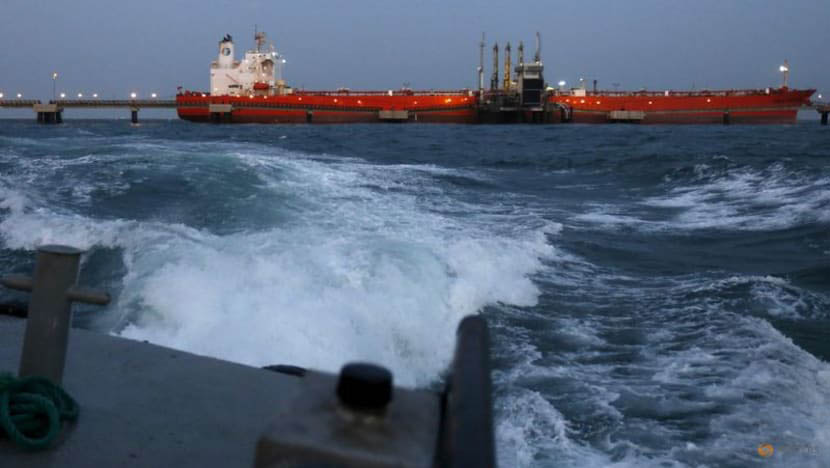Reports that Venezuela’s oil sector appears to be seeking an unlikely near-term recovery, in the face of sustained efforts by the United States to further squeeze the Maduro administration through an embargo that restricts oil exports are beginning to appear increasingly credible, according to reports in the international oil and gas media.
Up to just over a week ago, the Manhattan-based financial, software, data and media company, Bloomberg LP, was reporting that while up to a year ago the Venezuelan oil and gas industry had been dismissed as “a catastrophe too beaten down and too mismanaged ever to regain relevance,” evidence is reportedly emerging that rumours of its demise may well have been greatly exaggerated.
With recent international oil price jitters having worsened on account of oil supply concerns arising out of Russia’s ongoing invasion of Ukraine and, according to Bloomberg, “traders scrutinizing far-flung corners of the globe for signs of future production,” Venezuela’s oil industry is mounting “an unexpected recovery at the most opportune time.”
Bloomberg says that the Venezuelan oil sector “has more than doubled production since late 2020,” and that recent events including the support that has been forthcoming from Iran and more recently the anticipated oil supply challenges arising out of the conflict in Europe now means that there may well be even more room for the country’s oil output to grow.
What would now appear as something of a comeback for Venezuela’s oil industry appeared decidedly unlikely less than a year ago when the sanctions that saw major US oil companies withdraw from Caracas and pressured international shipping lines into not handling Venezuelan oil precipitated a crippling economic crisis that threatened the future of the government of President Nicolás Maduro.
One of the notable features of Venezuela’s oil production crisis had been the near collapse of the state-run oil company, Petroleos de Venezuela SA, Bloomberg had reported. The company had listed “financial sanctions from the U.S. in 2017; another round two years later that disrupted trading of its oil and forced contractors on the ground to pull back; an electricity blackout that took production offline for a week; the loss of oil storage in the Caribbean; and a global pandemic that sent prices for its heavy crude tumbling,” as being among the factors that had devastated ”the petro-state’s foreign currency” prior to the recent support which it had received mostly from Iran recently.
Bloomberg is now reporting that Venezuela had recently “worked out a new formula: importing light-oil from Iran to help it thin out its thick crude, working with local contractors to keep the oil flowing and selling it to China through middlemen.” The company says that as a result of these developments “PDVSA is now producing about 800,000 barrels a day, (around 60% of what it pumped before the US oil sanctions went into effect in January 2019) less than the 3 million barrels a day that had made the country “a global energy force in the 1990s,” but decidedly more than the “374,000 barrels a day it hit when the country was at rock bottom in June 2020.”
Still, Bloomberg is reporting that the administration of President Maduro has much to be thankful for since, it points out that “while 800,000 barrels a day is less than 10% of Saudi Arabia’s output and… will barely make a ripple internationally,” it represents “an important lifeline” for the Venezuelan government, “providing oxygen to an economy that just grew for the first time in seven years.”
On the back of several successive years of political instability and an economic crisis that forced the migration of tens of thousands of Venezuelans, the Maduro administration reportedly received an estimated US$11 billion in oil revenue in 2021, a 38% increase from the previous year. The country’s oil revenues are projected to grow to around US$15 billion this year.
The extent to which the Venezuelan oil industry is likely to further recover this year is dependent on several factors, some of these being the extent to which the country’s oil industry benefits from its seemingly growing relationship with Iran which has been important to the recovery which the South American country’s has experienced so far, as well as the extent to which the posture of the US allows for the unimpeded outward flow of Venezuelan oil to international markets. The other more recent consideration has to do with the likelihood that higher exports could materialise out of Russia’s recent invasion of neighbouring Ukraine and the consequential western shipping bans and financial sanctions that could spur demand for Venezuela’s crude and residual products.
Bloomberg is also reporting that in February PDVSA oversaw the shipping of 730,930 barrels per day (bpd), the highest since July 2021 and a 76% increase over January, with most of that cargo bound for China through trans-shipping hubs like Malaysia.








